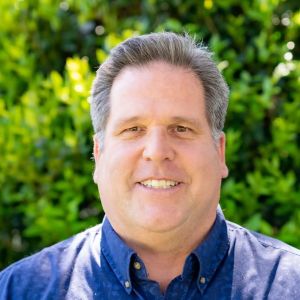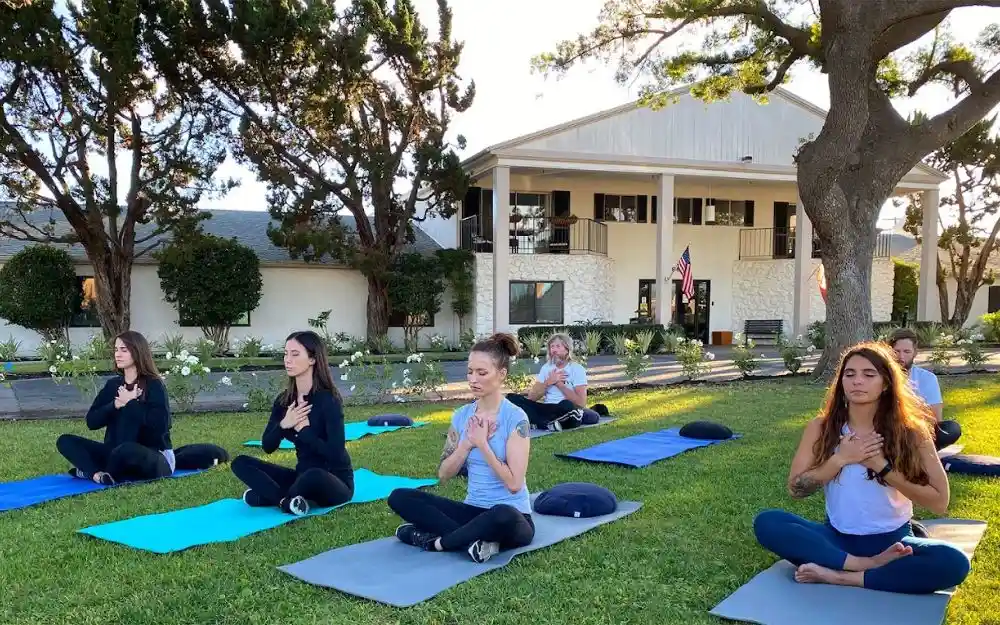Newport Beach, California, United States
Northbound Newport Beach
Claimed
Claimed
Recovery.com has connected directly with this treatment provider to validate the information in their profile.
Joint Commission Accredited
The Joint Commission accreditation is a voluntary, objective process that evaluates and accredits healthcare organizations (like treatment centers) based on performance standards designed to improve quality and safety for patients. To be accredited means the treatment center has been found to meet the Commission's standards for quality and safety in patient care.
Provider's Policy
We have a team dedicated to maximizing your drug rehab insurance coverage to minimize your out-of-pocket expenses. Northbound accepts a wide variety of insurance providers. Provide your health insurance information via our Insurance Verification Form, and we will handle the rest.
Estimated Cash Pay Rate
The cost listed here ($700 per day) is an estimate of the cash pay price. Center pricing can vary based on program and length of stay. Contact the center for more information. Recovery.com strives for price transparency so you can make an informed decision.
About Northbound Newport Beach
Founded in 1998, Northbound Treatment Center is a leading drug and alcohol addiction center dedicated to transforming the lives of those struggling with addiction and co-occurring mental health disorders. Northbound’s mission is to motivate and help as many people as possible to help achieve a successful and fulfilled life beyond addiction. They accomplish this mission by offering full comprehensive dual-diagnosis care that is personalized to the clients specific needs. Northbound offers medical detox, intensive outpatient (IOP), partial hospitalization (PHP), residential care, and teletherapy.
Treatment programs are rooted in evidence-based therapies, 12-Step philosophy and their very own innovative In Vivo® model of care. During treatment, clients engage in gender-specific, holistic treatment while working closely with an interdisciplinary treatment team to customize their care and provide support along each step of the way.
Northbound treatment has a variety of unique therapy programs ranging from music therapy, career bound programs, faith-based programs, and a trauma specific program. The music program caters to musicians of all levels, both beginners, and advanced musicians. During this time self-expression is promoted through writing lyrics and composing melodies. It's a comprehensive program that offers clients the opportunity to see what life is like as a musician in active recovery. The Collegebound® program caters to young adults and offers a unique opportunity to help further their education while building a brighter future. The Careerbound® program supports work efforts through a variety of ways including resume writing, work skills development, job placement, and more. The faith-based program caters to Christians who wish to implement biblical principles into their recovery program. With personalized treatment and many specialized programs, Northbound truly reaches everyone's specific needs.
Gender-specific, residential treatment takes place in Garden Grove and Newport Beach California while outpatient services are located in La Jolla and Visalia. Each home is designed with the client's comfort in mind. Semi-private rooms are available with lush queen-size beds along with spacious living areas, modern design, and outdoor areas perfect for relaxing. Clients also have access to a variety of activities such as beach bonfires, yoga for all experiences, and recreational activities. Northbound also caterers in 3 nutritious meals a day, taking into consideration the client's specific dietary needs.
With over 30 years of experience and many positive reviews, clients can rest assured knowing Northbound treatment is second to none.
Read More

Insurance Accepted
Provider's Policy:We have a team dedicated to maximizing your drug rehab insurance coverage to minimize your out-of-pocket expenses. Northbound accepts a wide variety of insurance providers. Provide your health insurance information via our Insurance Verification Form, and we will handle the rest.

Center Overview
Estimated Cash Pay Rate
Young Adults
Emerging adults ages 18-25 receive treatment catered to the unique challenges of early adulthood, like college, risky behaviors, and vocational struggles.
Midlife Adults
For adults ages 40+, treatment shifts to focus on the unique challenges, blocks, and risk factors of their age group, and unites peers in a similar community.

Treatment Focus
This center treats primary substance use disorders and co-occurring mental health conditions. Your treatment plan addresses each condition at once with personalized, compassionate care for comprehensive healing.

Care Options







Treatment
Specializations
Alcohol
Using alcohol as a coping mechanism, or drinking excessively throughout the week, signals an alcohol use disorder.
Drug Addiction
Drug addiction is the excessive and repetitive use of substances, despite harmful consequences to a person's life, health, and relationships.
Life Skills
Teaching life skills like cooking, cleaning, clear communication, and even basic math provides a strong foundation for continued recovery.
Music Therapy
Singing, performing, and even listening to music can be therapeutic. Music therapy sessions are facilitated by certified counselors.
Gender-Specific
Separate treatment for men or women can create strong peer connections and remove barriers related to trauma, shame, and gender-specific nuances.
Approaches
Evidence-Based
A combination of scientifically rooted therapies and treatments make up evidence-based care, defined by their measured and proven results.
Holistic
A non-medicinal, wellness-focused approach that aims to align the mind, body, and spirit for deep and lasting healing.
Christian
Through surrender and commitment to Christ, patients refocus the efforts and source of their recovery with clinical and spiritual care.
Gender-Specific
Separate treatment for men or women can create strong peer connections and remove barriers related to trauma, shame, and gender-specific nuances.
Therapies
1-on-1 Counseling
Patient and therapist meet 1-on-1 to work through difficult emotions and behavioral challenges in a personal, private setting.
Trauma-Specific Therapy
This form of talk therapy addresses any childhood trauma at the root of a patient's current diagnosis.
Equine Therapy
Guided interactions with trained horses, their handler, and a therapist can help patients improve their self-esteem, trust, empathy, and social skills.
Experiential Therapy
With this approach, patients heal by doing. Therapists help patients process difficult emotions to speak, using guided activities like art or dance.
Eye Movement Therapy (EMDR)
Lateral, guided eye movements help reduce the emotional reactions of retelling and reprocessing trauma, allowing intense feelings to dissipate.
Family Therapy
Family therapy addresses group dynamics within a family system, with a focus on improving communication and interrupting unhealthy relationship patterns.
Life Skills
Teaching life skills like cooking, cleaning, clear communication, and even basic math provides a strong foundation for continued recovery.
Motivational Interviewing
Based on the idea that motivation to change comes from within, providers use a conversational framework to discover personalized methods for change.
Motivational Interviewing and Enhancement Therapy (MET)
This approach is based on idea that motivation to change comes from within. Providers use a conversational framework that may help you commit to recovery.
Conditions We Treat
Grief and Loss
Grief is a natural reaction to loss, but severe grief can interfere with your ability to function. You can get treatment for this condition.
ADHD, ADD
ADHD is a common mental health condition caused by dopamine imbalance. Common symptoms include inattention, hyperactivitiy, and impulsivity.
Anger
Although anger itself isn't a disorder, it can get out of hand. If this feeling interferes with your relationships and daily functioning, treatment can help.
Anxiety
Anxiety is a common mental health condition that can include excessive worry, panic attacks, physical tension, and increased blood pressure.
Bipolar
This mental health condition is characterized by extreme mood swings between depression, mania, and remission.
Codependency
Codependency is a pattern of emotional dependence and controlling behavior. It's most common among people with addicted loved ones.
Depression
Symptoms of depression may include fatigue, a sense of numbness, and loss of interest in activities. This condition can range from mild to severe.
Eating Disorders
An eating disorder is a long-term pattern of unhealthy behavior relating to food. Most people with eating disorders have a distorted self-image.
Obsessive Compulsive Disorder (OCD)
OCD is characterized by intrusive and distressing thoughts that drive repetitive behaviors. This pattern disrupts daily life and relationships.
Post Traumatic Stress Disorder
PTSD is a long-term mental health issue caused by a disturbing event or events. Symptoms include anxiety, dissociation, flashbacks, and intrusive thoughts.
Substances We Treat
Alcohol
Using alcohol as a coping mechanism, or drinking excessively throughout the week, signals an alcohol use disorder.
Benzodiazepines
Benzodiazepines are prescribed to treat anxiety and sleep issues. They are highly habit forming, and their abuse can cause mood changes and poor judgement.
Co-Occurring Disorders
A person with multiple mental health diagnoses, such as addiction and depression, has co-occurring disorders also called dual diagnosis.
Cocaine
Cocaine is a stimulant with euphoric effects. Agitation, muscle ticks, psychosis, and heart issues are common symptoms of cocaine abuse.
Drug Addiction
Drug addiction is the excessive and repetitive use of substances, despite harmful consequences to a person's life, health, and relationships.
Ecstasy
Ecstasy is a stimulant that causes intense euphoria and heightened awareness. Abuse of this drug can trigger depression, insomnia, and memory problems.
Methamphetamine
Methamphetamine, or meth, increases energy, agitation, and paranoia. Long-term use can result in severe physical and mental health issues.
Opioids
Opioids produce pain-relief and euphoria, which can lead to addiction. This class of drugs includes prescribed medication and the illegal drug heroin.
Prescription Drugs
It's possible to abuse any drug, even prescribed ones. If you crave a medication, or regularly take it more than directed, you may have an addiction.
Aftercare
Experience
Personal Amenities
Amenities
Special Considerations
Gender-specific groups
Patients in gender-specific groups gain the opportunity to discuss challenges unique to their gender in a comfortable, safe setting conducive to healing.
Religion-Based Track
Patients can join faith-based recovery tracks to approach recovery with others in their faith, healing in a like-minded group with similar goals.
Young Adults Program
Programs for young adults bring teens 18+ together to discuss age-specific challenges, vocational and educational progress, and successes in treatment.
Activities
Yoga
Yoga is both a physical and spiritual practice. It includes a flow of movement, breathing techniques, and meditation.
Off-Site Activities
Off-Site Amenities
Professional Staff

Dr. Turner
Medical Director

Amanda Ferguson
Program Director

Craig Strerner
Director of Operations

David Gates
Director of Family Services
View More Team Members
We love hearing about your treatment experience
Help individuals and families seeking treatment by sharing your first-hand experience with this treatment provider. Review Guidelines.




























